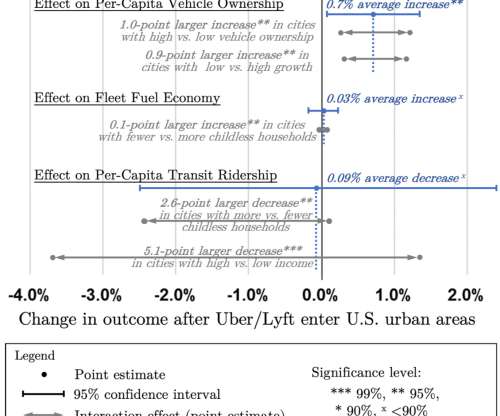CMU-led study finds that when Uber and Lyft enter cities, vehicle ownership increases
Green Car Congress
JANUARY 6, 2021
When ridesourcing companies Uber and Lyft show up in urban areas, vehicle registrations per capita increase by 0.7% Visual summary of regression model findings estimating TNC market entry effects on vehicle ownership, fuel economy, and transit ridership. Ward et al. But that’s not what we see in the data.






































Let's personalize your content